FIELD JOURNAL – BRAZIL
FROM OUR GREEN COFFEE TRADERS JOÃO, ERIC & THIBAULT
One of the benefits of having a local foothold is that you have the best local intel and guides. Front row seats when it comes to green coffee knowledge, coffee insights, coffee quality and hospitality. Lucky for all of us at EFICO and very nice for our customers. Because every now and then we take our roasters in tow to visit the local suppliers and projects together.
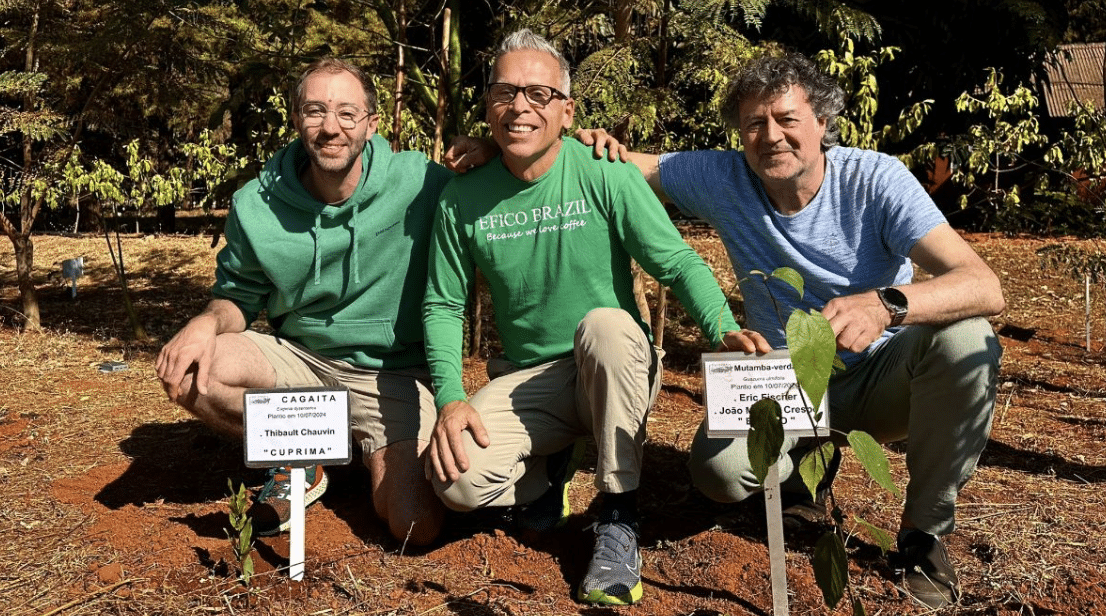
Several times a year, we visit the farmers we collaborate with at their origins. A few weeks ago, our green coffee traders, Eric and Thibault, traveled to Brazil to join our local EFICO Brazil director, Joao Marcos, for an intense and fascinating field trip.
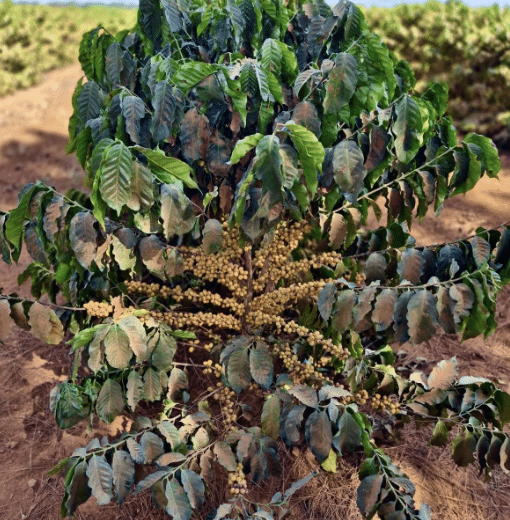
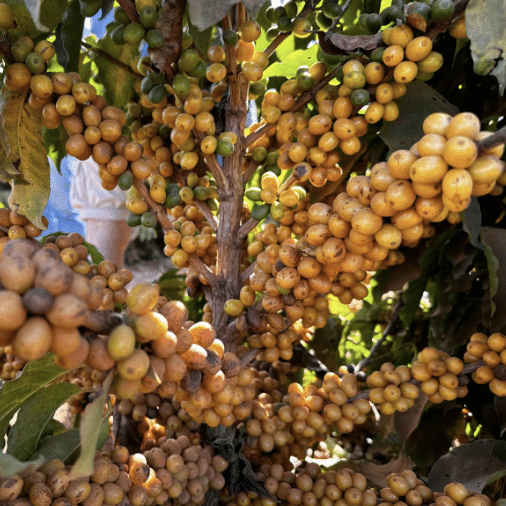
Choosing the destination for their visit was easy. Our green coffee traders went to Minas Gerais, Brazil’s largest coffee-producing state. Minas Gerais stands out not only because of its vast coffee production but also due to its favourable climate, diverse microclimates, focus on quality and innovation, substantial production volume, and rich cultural heritage. This diversity allows for the production of a wide range of coffee profiles, catering to various flavours and preferences globally.
Brazil – Coffee Powerhouse
Minas Gerais
‘Minas Gerais’ translates from Portuguese to ‘General Mines’ in English. The name reflects the region’s historical significance due to its rich mineral resources. In the 18th century, Minas Gerais was a major center for gold and gem mining in Brazil. The discovery of these resources attracted settlers and contributed to the region’s economic development. The wealth generated from mining activities played a crucial role in shaping the social and economic landscape of the region and Brazil as a whole during that time. The state is now better known for its agricultural output, particularly coffee, as well as its cultural heritage and natural beauty.
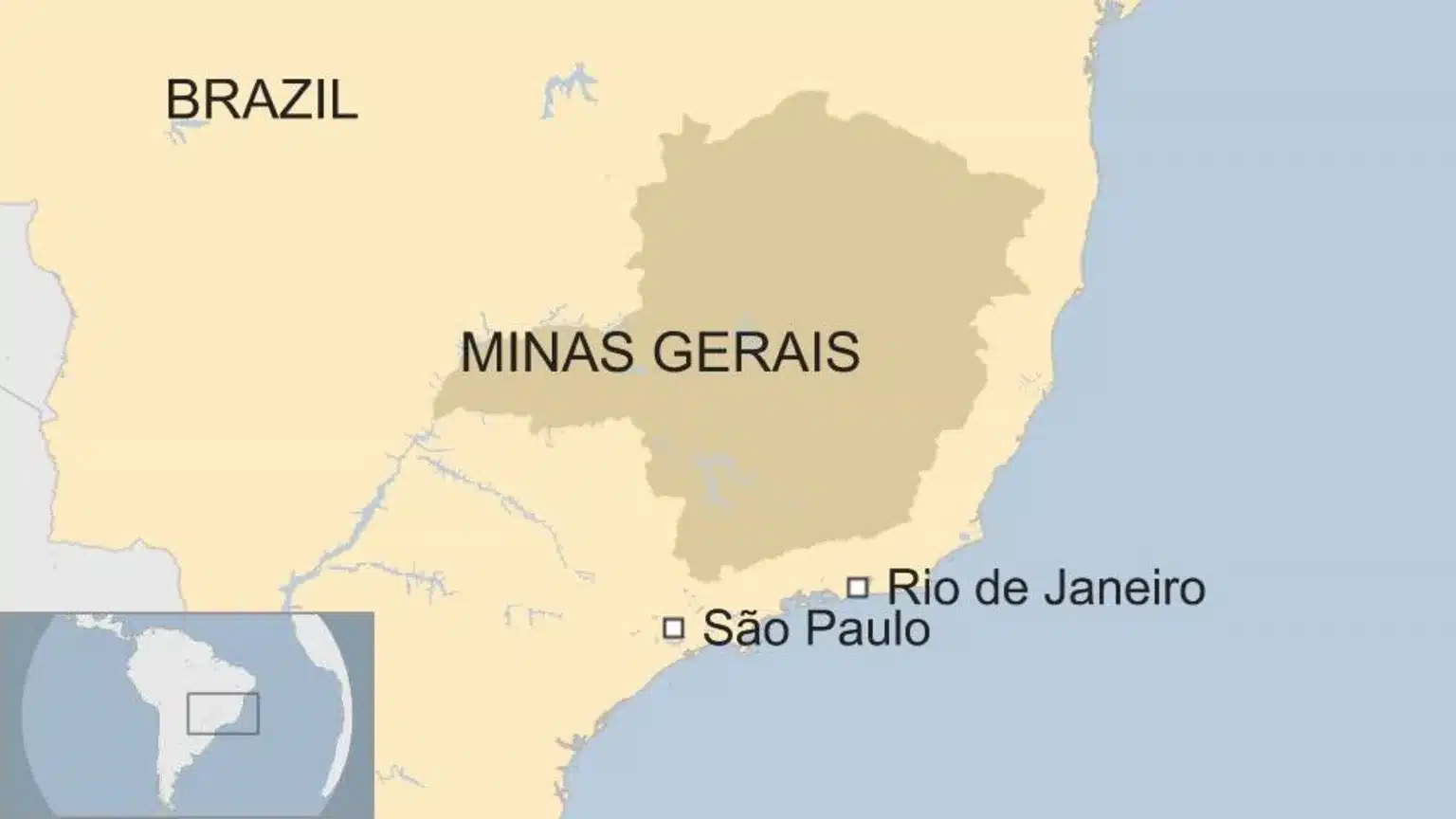
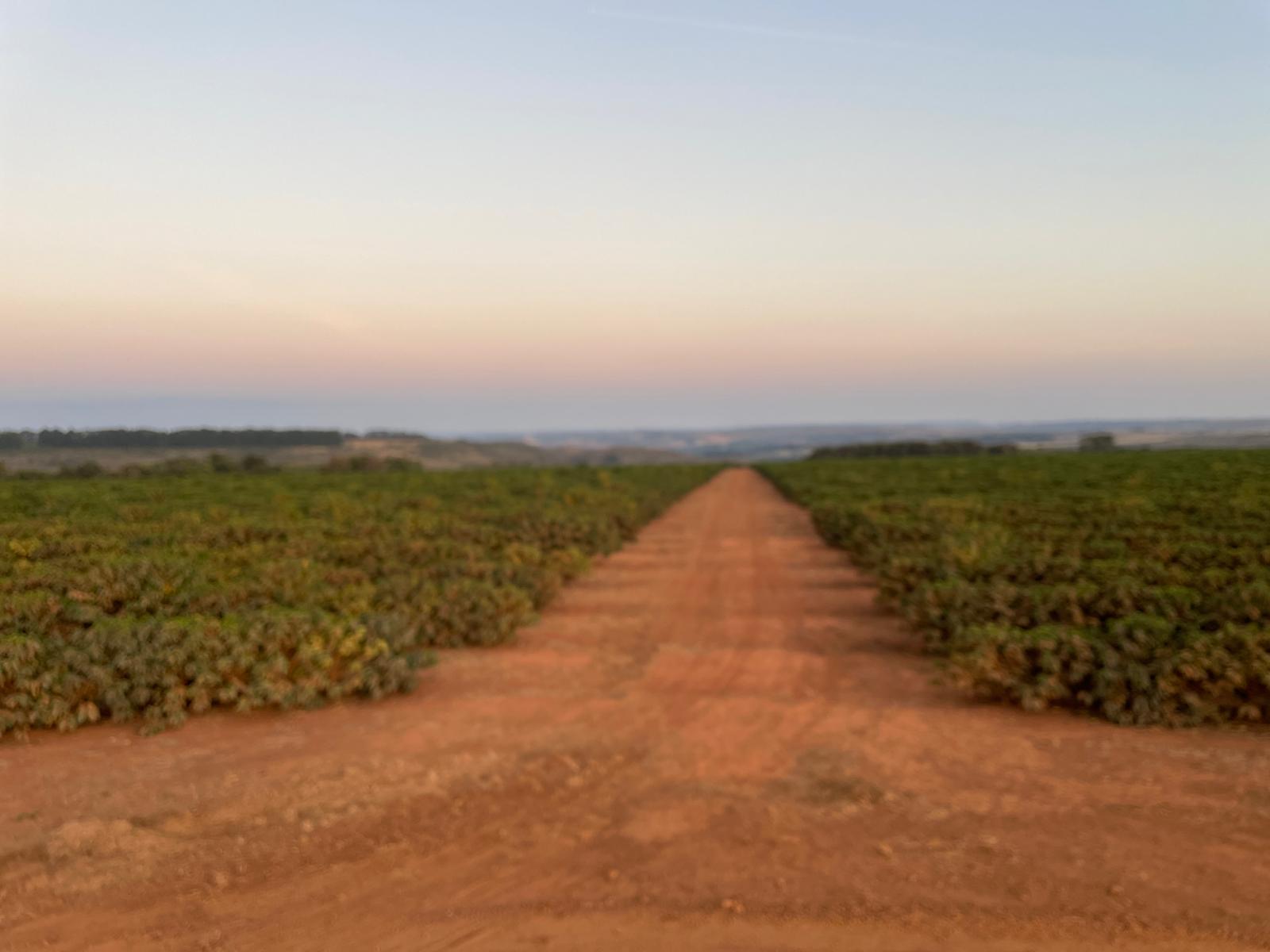
FIELD & FARM TRIP ‘DATERRA COFFEE’
Focus on Sustainability and Quality with an Experimental Touch
Region: Cerrado – City: Patrocínio – State: Minas Gerais
Producer: Luis Pascoal
Key Words: Sustainable, Selective Mechanical Picking, Research & Development, First Rainforest Alliance-certified Farm in Brazil
Our team started their trip in Cerrado Mineiro visiting one of the pioneers in the Brazilian Specialty coffee industry and dear partner ‘Daterra’. We have been working together for over 2 decades, to our mutual satisfaction.
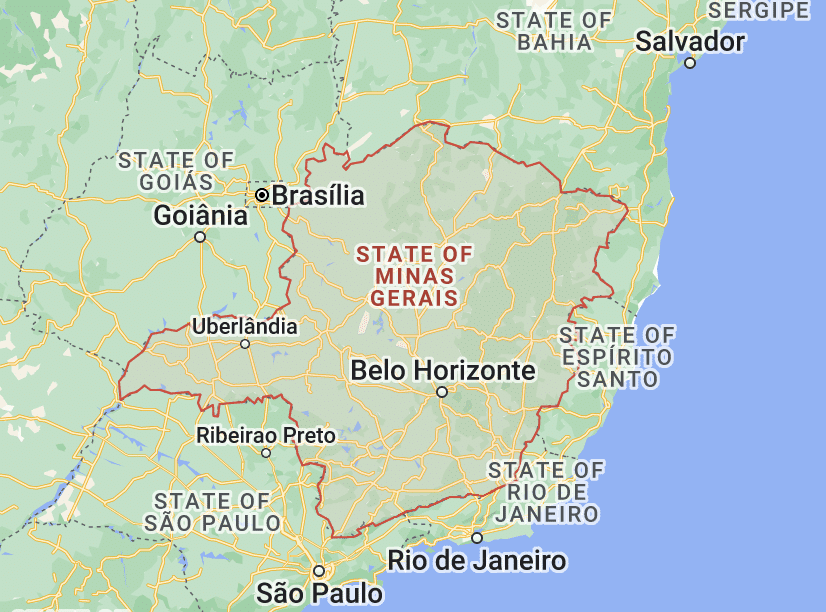
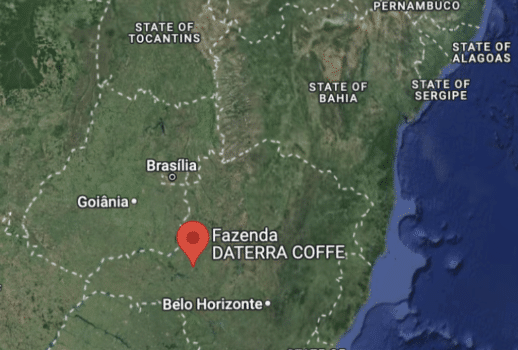
Hi Eric and Thibault! We’d love to hear all about your visit to our partner, Daterra. You toured the plantations, nursery and lab and participated in cupping sessions for the ‘Classic’, ‘Collection’, and ‘Masterpieces’ ranges. You also explored the treatment unit, including sorting and packaging, and learned about Daterra’s innovative approaches to water, CO2, and energy farming. How was the experience? What did you find most impressive, and what stood out to you?
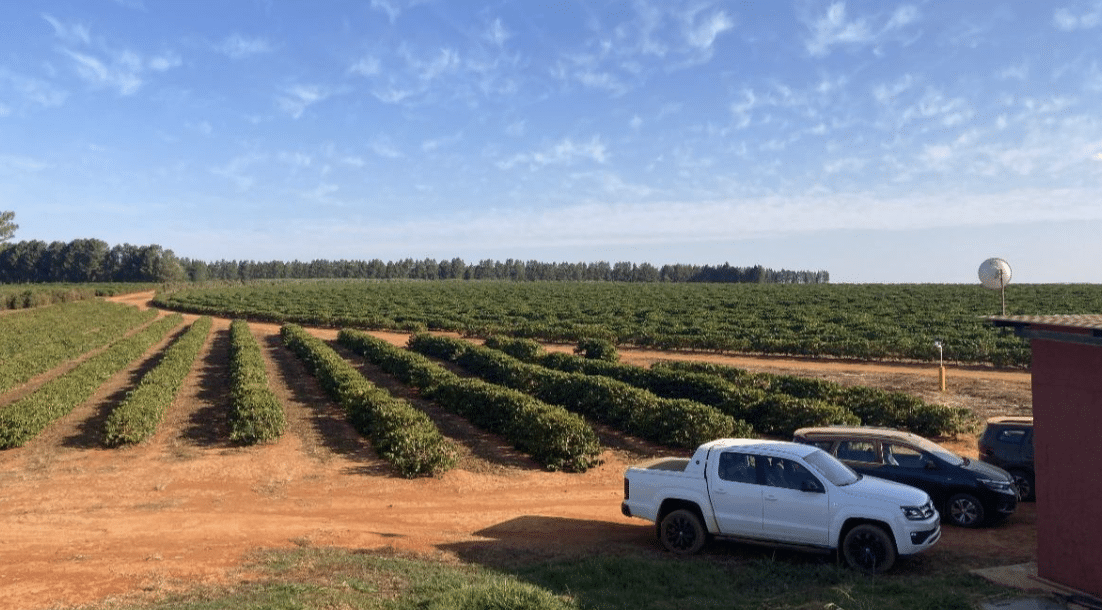
Eric starts off: ‘The Pascoal family -founders of Daterra, originally came from Italy and immigrated to Brazil in the early 1900s. Initially, they worked on coffee plantations, but their first major success came in the automotive industry near Campinas, São Paulo. Today, their legacy continues through DPaschoal auto and tire shops, named after the family patriarch, Donato Pascoal, which you can still find throughout Brazil.’
‘It wasn’t until the 1990s, after a reintroduction to the coffee trade and the global rise of specialty coffee and espresso culture, that the Pascoal family would choose the Cerrado to begin concentrating investments in coffee production, leading to the beginnings of the Daterra we know today.’
‘The Cerrado is a vast tropical savanna covering about 23% of Brazil’, Eric explains. ‘At first, the region wasn’t suitable for agriculture because of its low pH soil. But in the late 1990s, massive amounts of lime were added to the soil to deacidify it. These changes transformed the Cerrado into a region well-suited for a distinctive style of coffee production.’
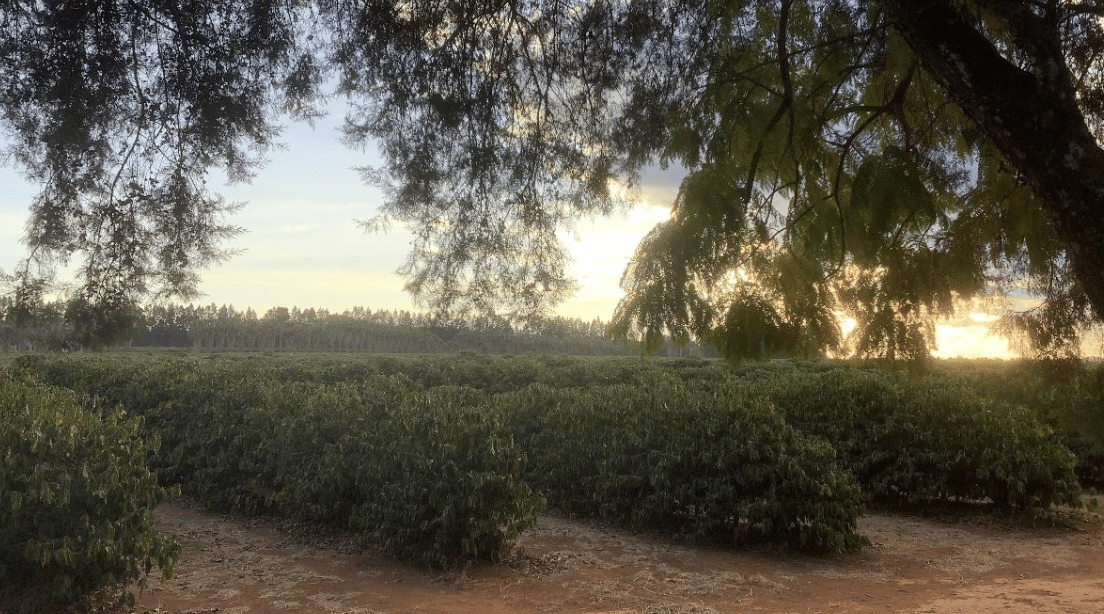
Thibault adds, ‘The Cerrado’s altitude, ranging from 1,000 to 1,200 meters above sea level, and its flat plateaus make it ideal for coffee cultivation and the use of mechanical quipment. The region experiences distinct wet and dry seasons. The rainy season starts in September and lasts until early summer in January-February -which is crucial for the development of the beans, as it provides necessary nutrients. Insufficient rain during this period can reduce yields by causing plants to drop flowers. From April to May, cherries begin to ripen as the dry season begins, running from June to August. This dry season is essential for a successful harvest; excessive rain can damage cherries, promote mould, and complicate drying.’
‘At Daterra, the long dry season and ample sunlight ensure most coffee is fully dried on the tree, a method so closely associated with the region that it’s known as ‘Cerrado coffee’. It’s believed that yellow coffee varieties in Cerrado evolved as a natural adaptation to the intense sun and heat, as their yellow skins absorb less heat, reducing stress on the seeds.’
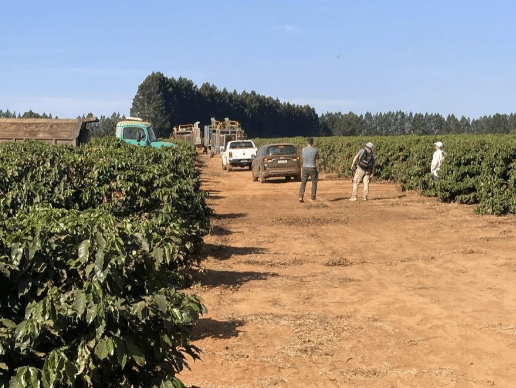
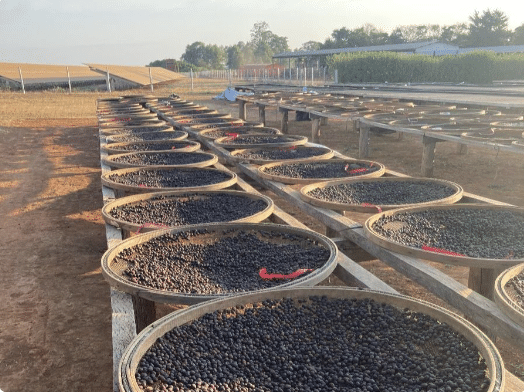
‘The high-altitude terroirs in this area yields unique flavours and aromatic profiles, and the desert climate provides an advantage for quality control during the growing season.’, Eric adds. ‘This realisation led Daterra to finally settle in Cerrado Mineiro, where they acquired the Boa Vista and Tabuões farms that now comprise Daterra. It took ten years of development for the Daterra farm to produce high-quality coffee ready for export.’
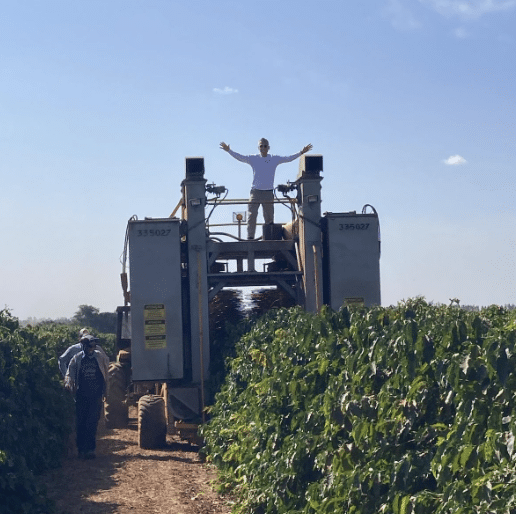
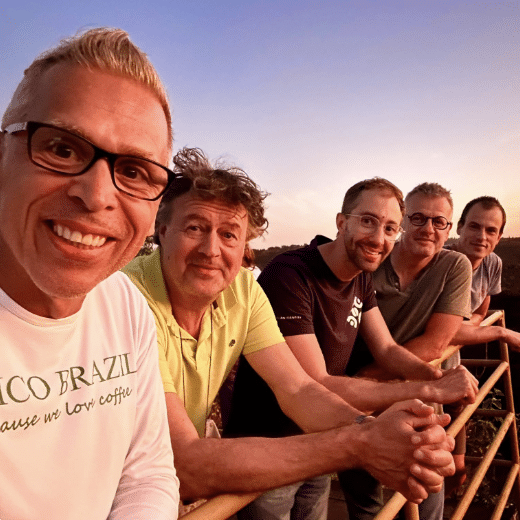
Thibault explains: ‘Daterra’s background in the automotive industry has driven some remarkable innovations. They’ve customised around 40 mechanical pickers for precise selective harvesting and created the UNIPAC system. This cutting-edge technology sorts coffee cherries by maturity using water pressure, ensuring only the best beans move forward. After processing, advanced colour sorters verify that the green beans meet Daterra’s high standards, while specialised machines clean up and process fallen beans separately, maintaining the integrity of the main system.’
Eric adds: ‘But that’s not all! Daterra’s micro mill is where the magic of experimental and Masterpiece lots unfolds. Here, coffee can be fermented under diverse conditions, including airlock, darkness, or with added yeasts and adjuncts. This facility, designed for high-quality small batch processing, features easy-to-clean stainless steel equipment, washing channels, raised beds, and a dedicated dry mill‘.
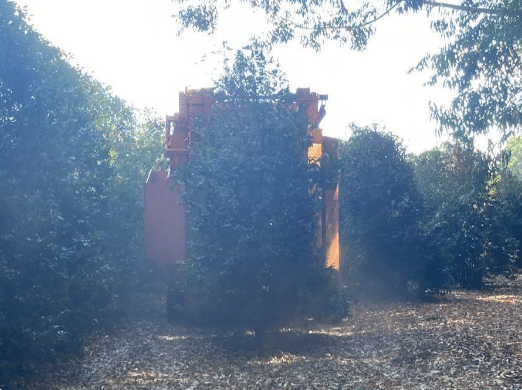
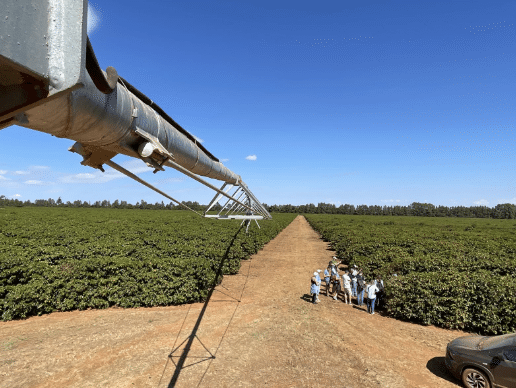
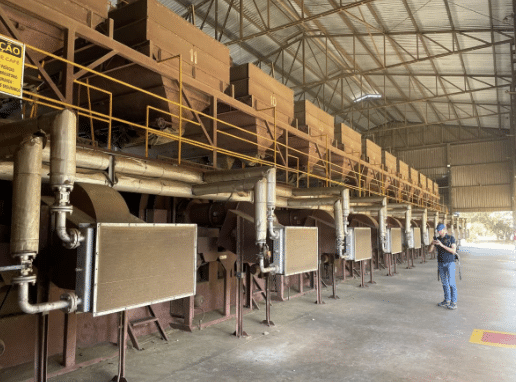
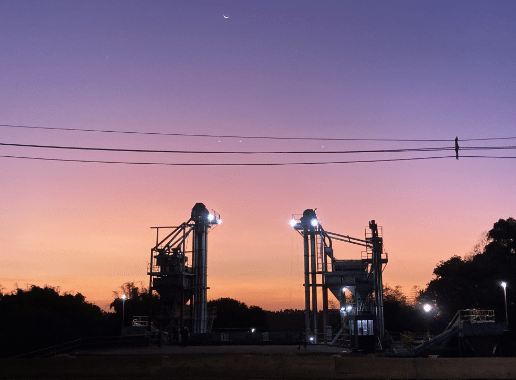
‘When Daterra began their coffee venture, sustainable agriculture was a novel concept in Brazil’, Thibault explains. ‘At Daterra, they posed theirselves a crucial question: “How can we take from the earth without harming it?” Their answer was simple: “We borrow it, and then we give back”.’
‘They were the first Rainforest Alliance-certified farm in Brazil and set a benchmark for sustainable farming with their model, introduced by Illy in 2008. They also became the first farm to be verified as climate-friendly by the Sustainable Agriculture Network’s Climate Module. In 2015, their dedication to sustainability earned them the ‘Prêmio Fazenda Sustentável’ from Globo Rural, Brazil’s leading agricultural magazine, recognising them as the most sustainable farm in the country.‘
Eric adds. ‘As one of our hosts said, “Daterra is not just a farm; it’s a scientific laboratory that produces coffee. The farm also features an experimental plot dedicated to coffee genetics, housing over 150 unique genetic materials. Daterra also partners with Brazilian scientific institutes to develop coffee varieties that are resilient to climate change, pests, diseases, and offer exceptional flavour profiles.’
‘The Daterra team has planted over 600,000 native trees in the Cerrado and aims to boost carbon sequestration by 50% by 2030 with an additional 20 million trees. From the start, Daterra’s founders aimed to create an innovative specialty coffee farm centered on environmental conservation, regenerative agriculture, and social development. These values, combined with a keen awareness of climate challenges, have made Daterra a global leader in progressive coffee farming.’
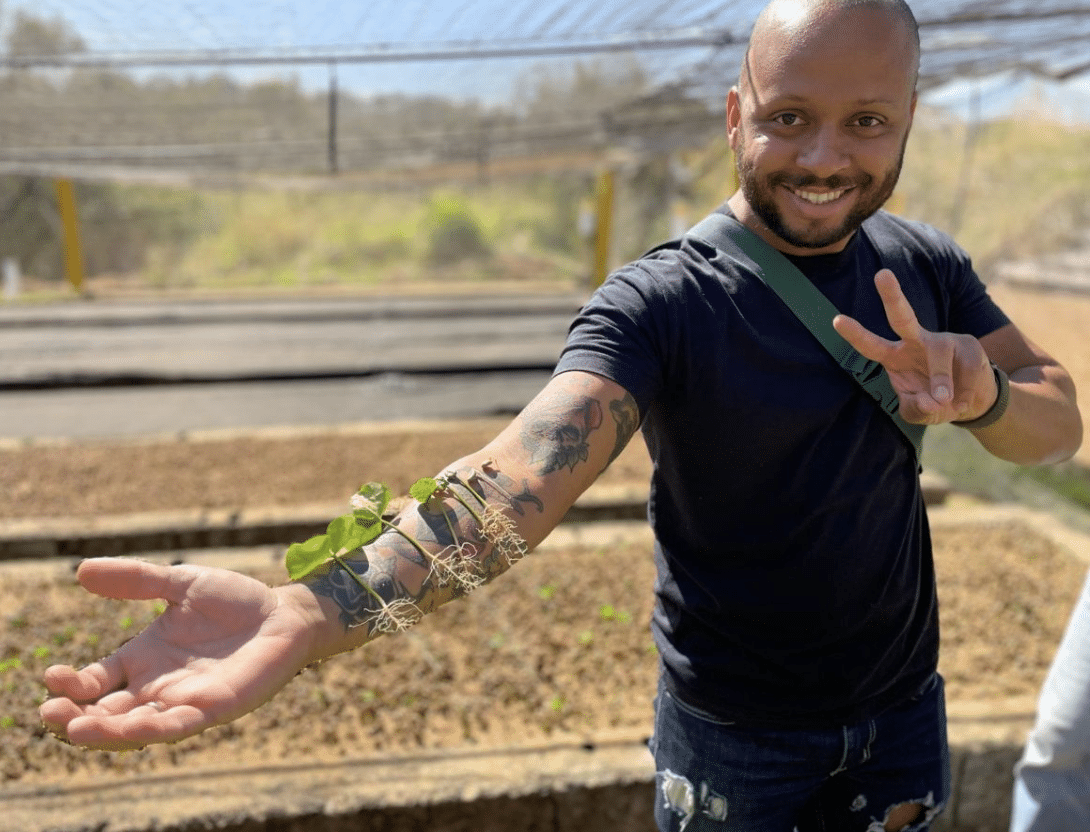
‘During our visit, the people of Daterra were eager to update us on much of the development they have made in recent years and show us the ongoing projects‘, Thibault explains. ‘That’s one of the big things that struck me, how much they keep moving. Be it agricultural practices, often with sustainability in focus, processing techniques, varieties, literally everything when it comes to producing coffee.’
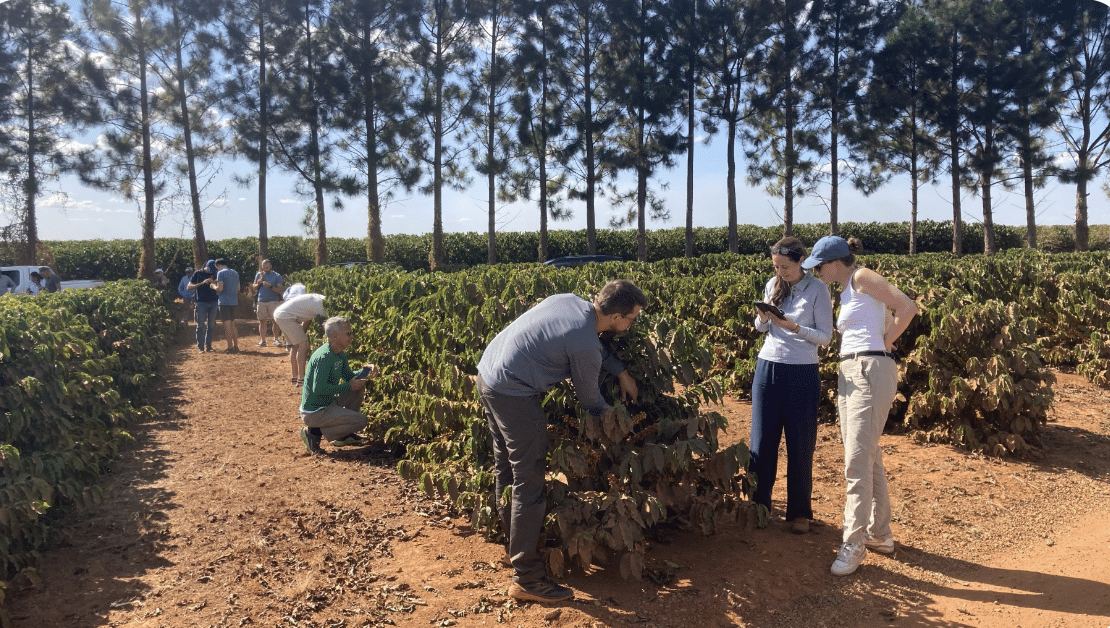
So what struck you most, Thibault and Eric?
Thibault: ‘Daterra developed its own farm management system, 2 big farms have been divided in 200 ‘minifarms’ which are being monitored individually. They don’t harvest in function of bean color or brix test. They rely on their production labs to determine optimal harvest times. Their agronomists sample branches from areas they believe have the right ripeness, then dry, roast, and cup the coffee to decide when to start harvesting. When 50 % of the cherries on a particular minifarm are red, a picking test is done, if the cup has the right profile, picking can start on this particular plot or minifarm. Meaning 14,000 cups cupped per crop to decide when to harvest… ‘
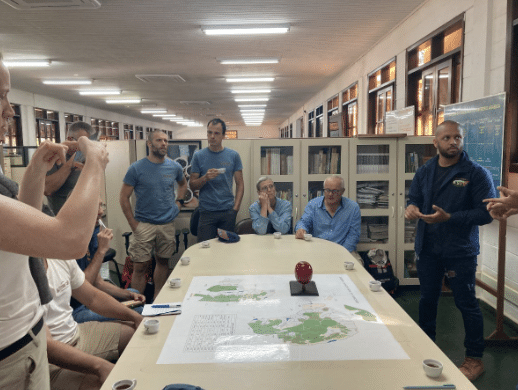
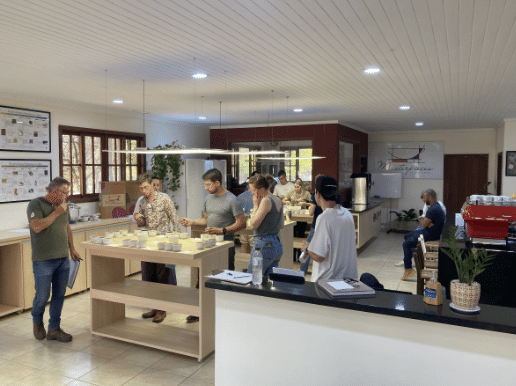
Eric: ‘I was particularly intrigued by the seedling nursery and the Penta boxes. In the Daterra Nursery, they cultivate 1,000,000 seedlings per year. Since seedlings are very expensive -costing around $1,000 per hectare, they grow their own.’
‘And then the Penta boxes, Eric continues. ‘Did you know Daterra was the first farm to vacuum pack its coffee beans? This protects them from light, pests, mould, and odours. Now, Daterra is gradually transitioning to Penta packaging. The plastic on this newer packaging is made from sugar cane, a renewable resource with much lower CO₂ emissions. The move will make 100% of Daterra packaging plant-based, recyclable and more climate-friendly.’
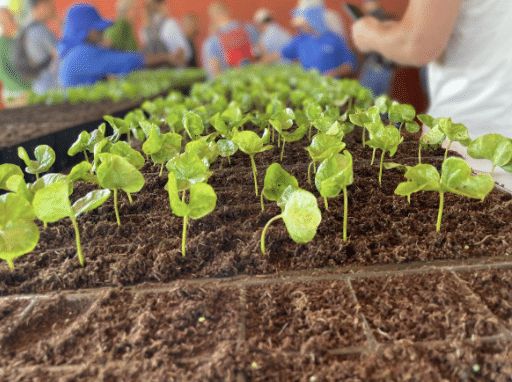
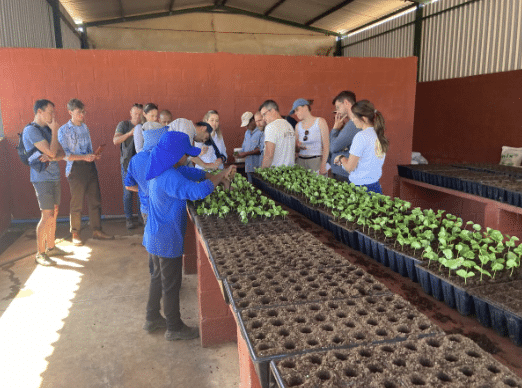
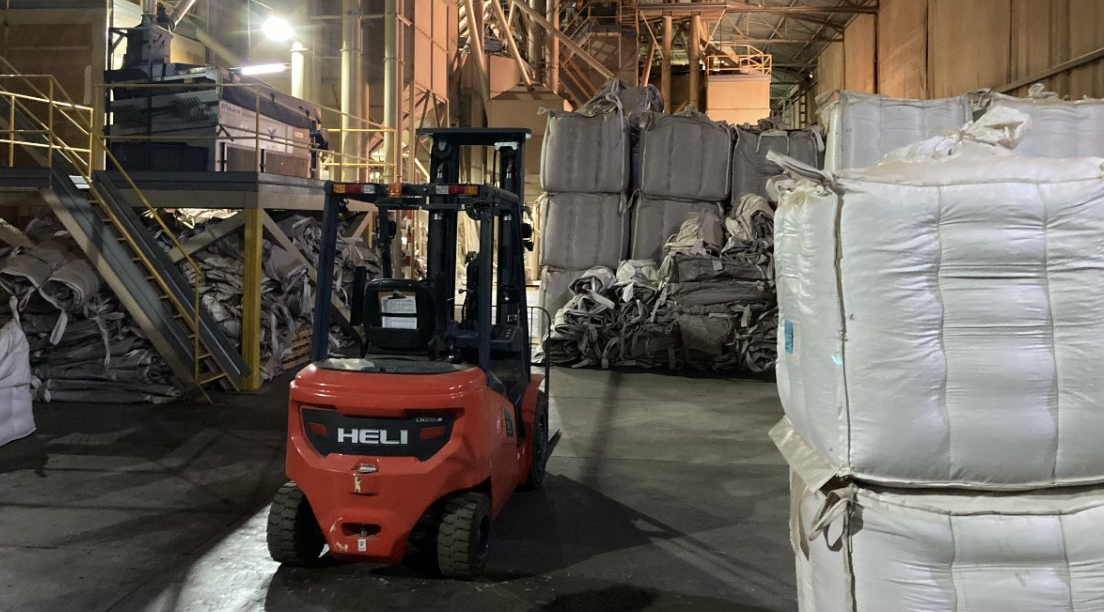
FIELD & FARM TRIP ‘FAZENDA DUTRA’
Focus on Specialty and Organic Coffees
Region: Matas de Minas – City: São João do Manhuaçu – State: Minas Gerais
Producers: Ednilson Alves Dutra & Walter Cesar Dutra
Key Words: Family owned & run farms, Organic Coffees, hand harvesting, Rainforest Alliance-certified
The second stop of their field trip was ‘Fazenda Dutra’ in the Matas de Minas Region in São João do Manhuaçu. We’ve been partners in business since 2013 -hard to believe it’s been a decade already!
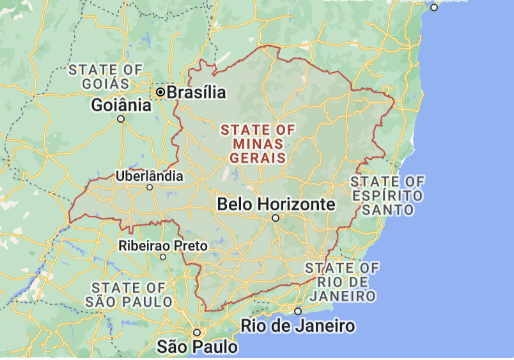
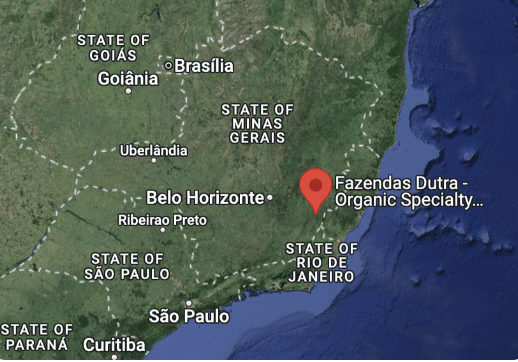
Eric and Thibault, for your second farm and field trip, you stayed in Minas Gerais, but went to a different region to visit our partner, the family-owned ‘Fazenda Dutra’. You toured several plantations, observed the harvest, visited the warehouse, drying station, and processing unit, and cupped the new harvest. How was this second visit? What impressed you the most, and what stood out?
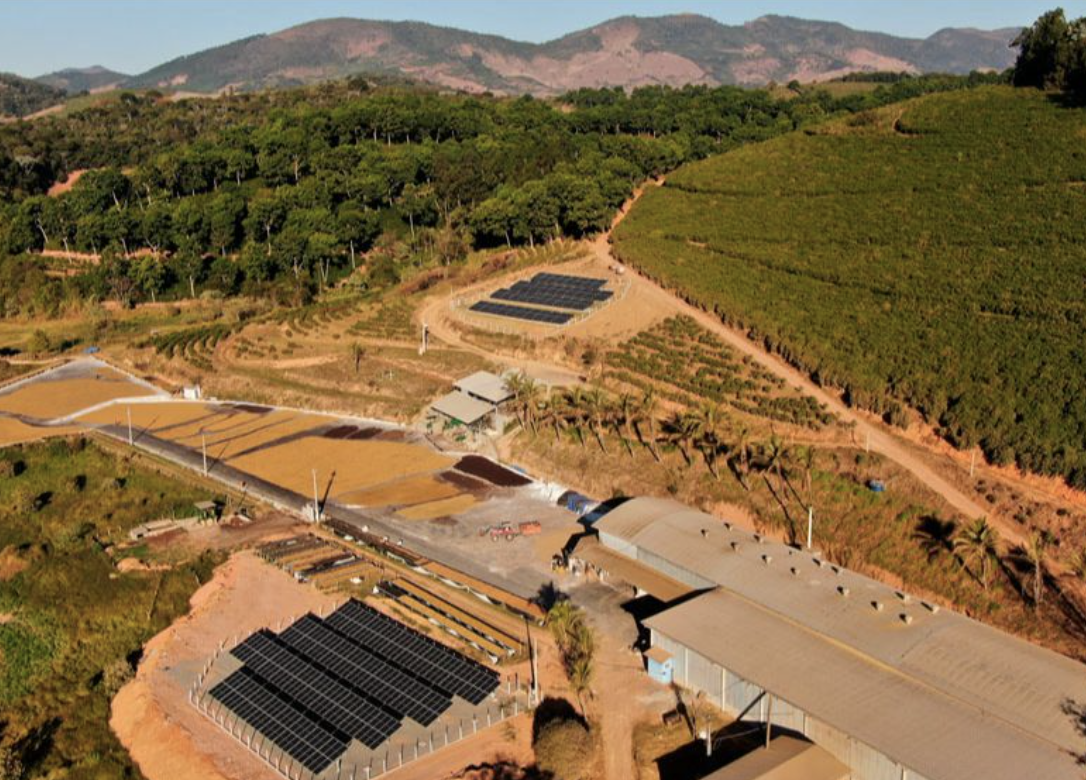
Eric starts: ‘The family business began in the 1950s when José Dutra Sobrinho started cultivating coffee on just over one hectare of land in Minas Gerais. José saw its potential and dedicated himself to expanding and improving it. By the time of his passing in 1999, he had grown the farm to over 300 hectares. The farm is currently run by second generation brothers Ednilson and Walter Dutra, alongside Osvaldina Dutra, their mother, who plays a key role in overseeing the quality control which led to them winning an award in the Cup of Excellence 2020. They have invested in their coffee education, including attending Illy’s Coffee University, and equipped with new knowledge they have participated in competitions, won more than 80 prizes and continue to improve the quality of their coffee.’
Thibault adds: ‘The Dutra brothers have been involved in growing coffee since the day they were born. Ednilson and Walter have expanded the farm to 1,300 hectares -with 800 hectares dedicated to specialty coffee and preserving 350 hectares as native forest. The coffee trees are interwoven with avocado trees, and the remaining acreage is both preserved native forest and cultivated eucalyptus, which is used during the harvest period and in drying machines. Production takes place in a mountainous region, approximately 1400 meters above sea level.‘
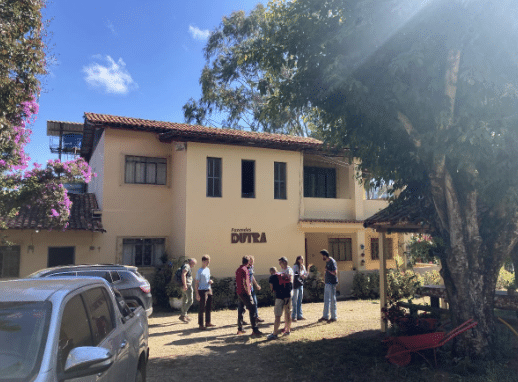
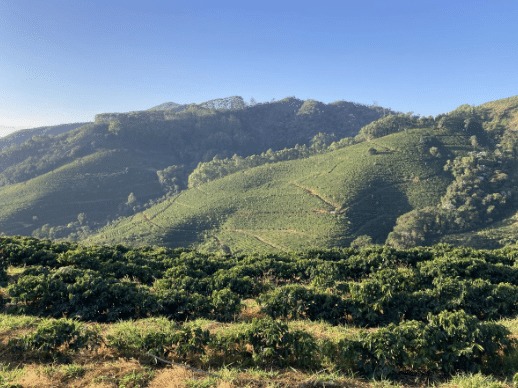
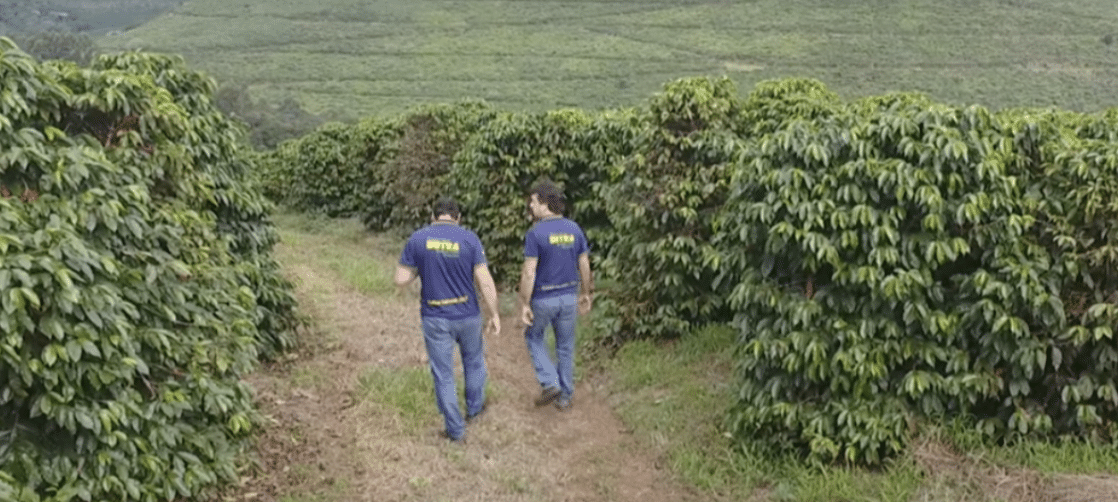
Thibault explains: ‘All picking is done manually, and with ‘mechanical hands’, this tool shakes the branches, cherries fall on a liner, cherries are being stored in big bags which are being picked up by tractors.’
‘Trees at Dutra farms are never replaced, as their roots can be up to 50 years old. It is believed that these older roots produce the best qualities and flavour profiles. The trunks are pruned to about 30 cm above the ground. Their artisanal processes make a substantial difference in the cup. Hand harvesting, high altitude, rich soil, and organic growing practices all contribute to a coffee that’s classified among the best in Brazil, both in quality and sustainability. The farm holds multiple certifications, including USDA Organic, Canada Organic, EU Organic, Korea Organic, Brazil Organic, and Rainforest Alliance-certified.’
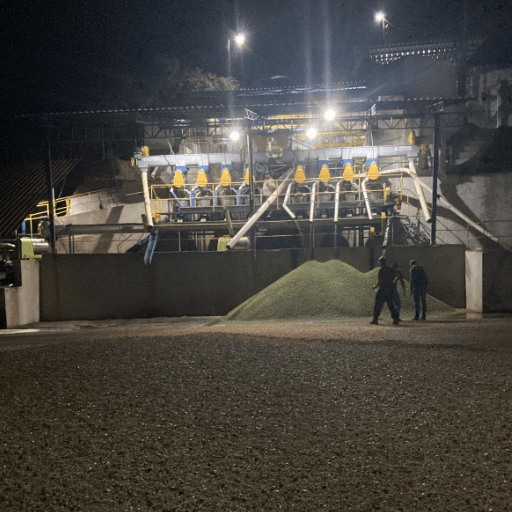
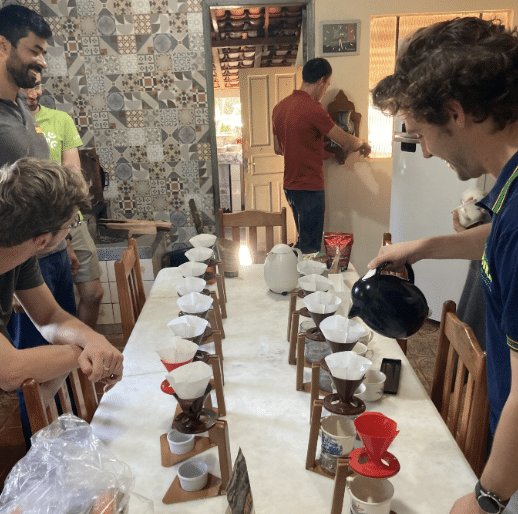
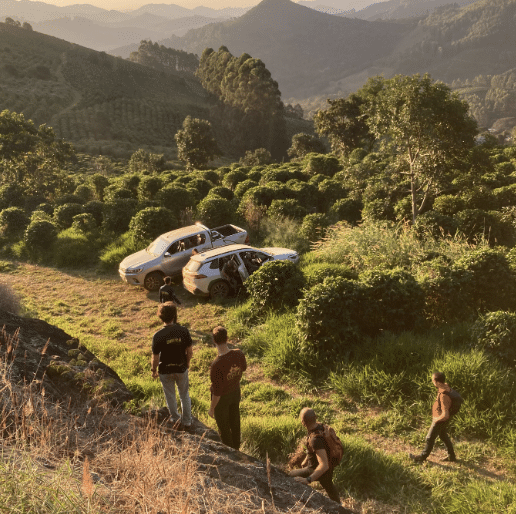
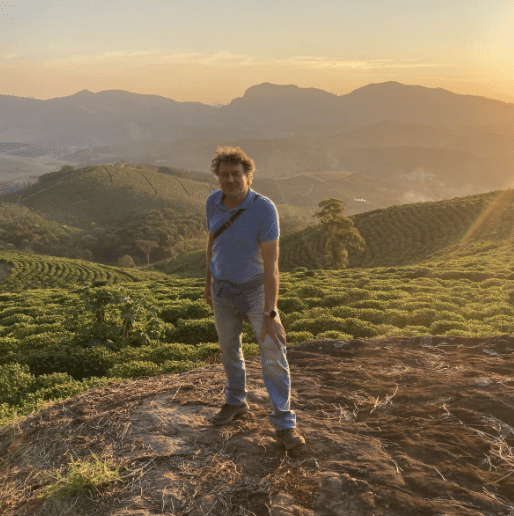
So what struck you most, Eric and Thibault?
Thibault: ‘I learned that transitioning from conventional to organic farming takes at least three years. It is only in the fourth year that coffee can be exported as organic. Fazendas Dutra is the largest producer of organic coffee in Brazil. Organic production in Brazil is quite limited because many regions are at risk of cross-contamination, making them unsuitable for organic farming…’
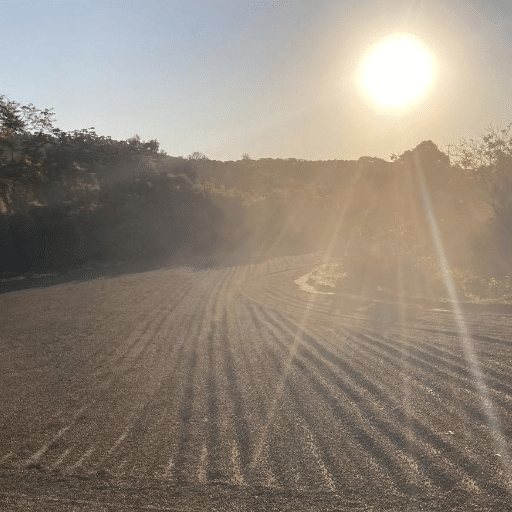
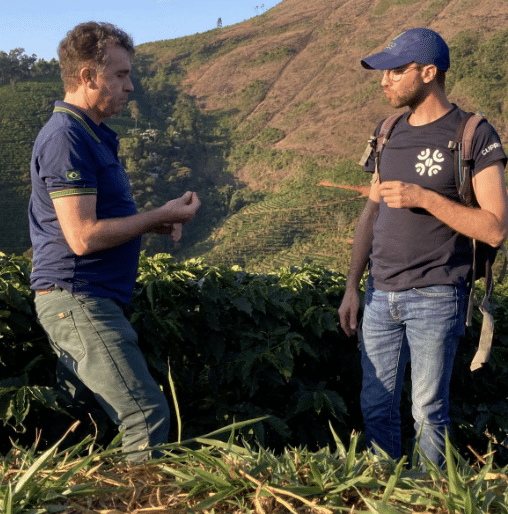
Eric adds, ‘I was really charmed by the family-oriented atmosphere at Fazenda Dutra. They take a personal and genuinely laid-back but professional approach. The next generation is already involved; we met Victoria, who is 26 and actively engaged in the family business.’
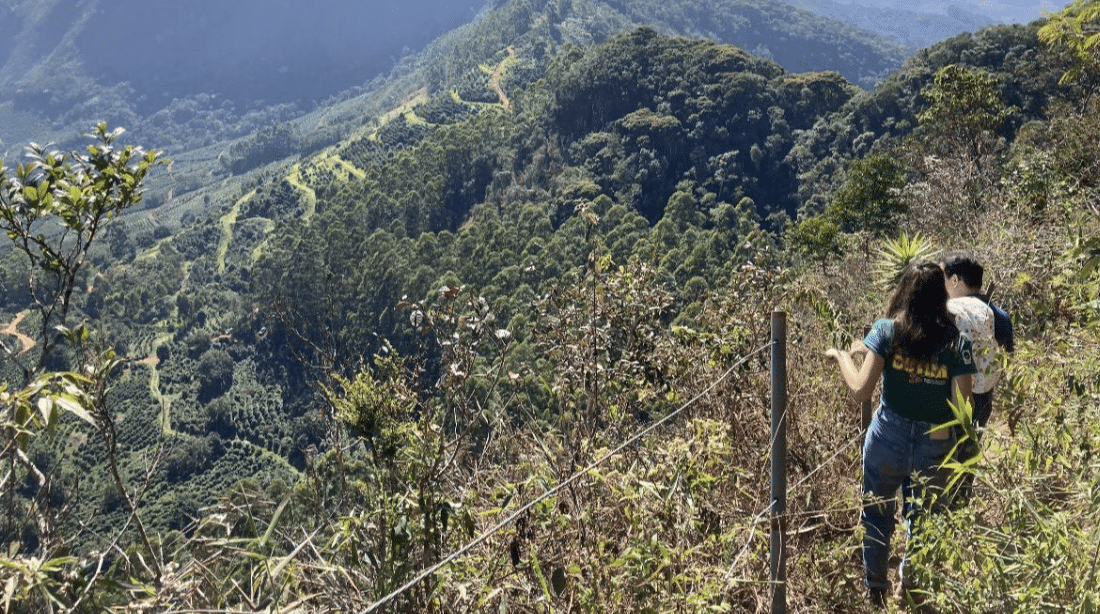
We are thrilled to continue our partnerships with these farms and look forward to the arrival of the new crops.
If you have any questions, need more infor and/or want to place your Brazilian coffee order, please don’t hesitate to reach out.
CREDITS, ACKNOWLEDGEMENTS & REFERENCES
Thank you, teams Daterra & Fazenda Dutra for the intel & organisation
Kudo’s to our colleagues João, Eric & Thibault for the field & farm report & pictures!
EFICO | Origin snapshot Brazil
CUPRIMA | Brazil: What to expect from crop 2023/2024?
